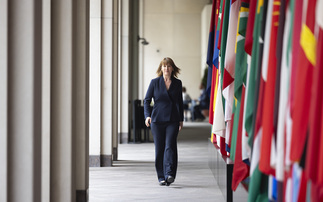Neil Williams, group chief economist at Hermes Investment Management, has said a vote to leave the European Union may lead to further quantitative easing (QE).
In a monthly update, Williams (pictured) said he fears Brexit risk will extend beyond June and also "ripple out beyond the UK".
He added a hard exit, which would involve an "acrimonious departure", would only be beneficial to short-term conventional gilts, but given around a third of the £1.4trn gilts outstanding is backed by international investors sensitive to currency and ratings risk, this could be short-lived.
As a result of this, combined with slowing growth and rising inflation, the Bank of England (BoE) may need to extend its bond-buying QE programme.
IW Podcast: Budget special with Hermes' chief economist Williams
The economist said: "It is possible that dealing with Brexit and a hit to growth may need the Bank to again be a sponsor of gilts, via QE. QT would be deferred.
"Which leaves governor Carney's latest clarification - that the QE stock will be maintained around £375bn until bank rate is about 2% - a way of extending his options should Brexit occur."
He added this could lead to investors - in Asia, for example - reacting positively to the relative cheapening of gilts.
Williams also warns a Brexit would cause the pound to fall and the impact on financial services would be "critical".
He said: "Financial services has been the heartbeat of the UK's recovery, providing disproportionate trade benefits, employment and tax revenue.
"The sector has, thus, more than most to lose from a Brexit. It may not be a 'disaster' in the short-term, but is it all worth risking?"
Earlier this year, Williams said uncertainty around the EU referendum could erode the UK's "safe-haven" status and Hermes' base case remained that Brexit should be avoided.
The referendum will take place on 23 June. The latest ICM poll shows 44% are in favour of remaining in the EU, while 45% believe the UK should leave. 11% are undecided.















